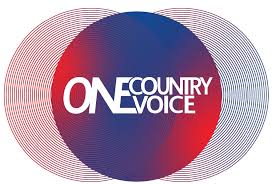
The Department of Trade and Industry (DTI) will hold an international trade forum to discuss international trade policy issues, including ongoing trade friction between the world’s economic heavyweights.
The forum is part of the DTI’s One Country, One Voice (OCOV) Stakeholder Consultation mechanism on trade policy formulation.
In particular, the forum aims to foster dialogue on how the Philippines can capitalize on opportunities presented by the trade war and address the challenges that hamper Philippine industries from taking full advantage of these opportunities.
The forum also aims to tackle how DTI can enhance its international trade policy strategy, leverage its participation in regional and global value chains, and maximize trade policy tools in light of rising global protectionism.
Economic simulations of the trade war’s impact on the Philippine economy illustrate minimal negative effects on exports.
“While the Philippines is not as vulnerable as other economies, a prolonged trade war could eventually impact Philippine exports,” DTI Secretary Ramon Lopez said in a statement.
Both the US and China are major trading partners of the Philippines. The Philippines currently enjoys preferential market access to the US through the Generalized Systems of Preferences scheme and also has a free trade agreement with China under the Association of Southeast Asian Nations.
Lopez added that apart from these existing mechanisms, “enhanced engagement with other major trading partners as well as with non-traditional partners [is] also being pursued to help strengthen and diversify Philippine export markets.”
The forum, which will be held on December 4 in Manila, will bring together international experts on trade policy, business leaders, policymakers, industry representatives, and government officials, among others.
DTI Undersecretary Ceferino Rodolfo said the One Country, One Voice consultations are “an important pillar in our unified industry and trade strategy that helps ensure that our trade negotiating position remains rational, responsive to, and grounded on the needs of our stakeholders”.
Launched in 2011, OCOV ensures transparency and accountability as government undertakes the process of engaging in dialogues, building mutual trust, and arriving at rational, sound and balanced trade policies in pursuit of national development.
